Warning: The following content includes a story of self-harm. Discretion is advised.
What’s the weight of the world’s water crisis?
Most of us have never had to think about when—or if—we’re going to be able to find clean water. We let it run from our faucets as we brush our teeth. Our workplaces and gyms have water fountains in every hallway. We take out a small loan to buy it when we’re on the go. (I’m looking at you, $4 bottle of water at the airport.)
Access to clean water is a right, not a privilege. But for the 703 million people drinking dirty water, equality remains out of reach. This reality is more than inconvenient. It’s devastating.
The average Jerry Can weighs 40lbs (18kg) when filled with water. Right now, a woman or young girl is hiking alongside a steep ravine, trekking through the jungle, or walking through a desert. The equivalent of a tire or canoe is strapped to her back or balanced on her head—perhaps with the added responsibility of a baby in tow. She’ll likely make this journey several times today just to collect enough water to cook her food, clean some clothes, or wash her body. With every step, the burden on her body increases.
But the weight on her heart and mind can be even heavier.

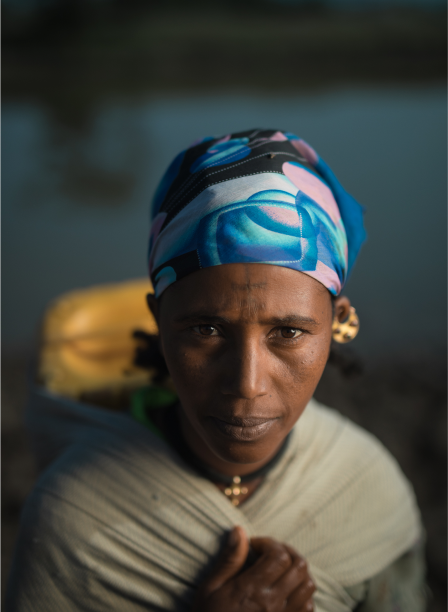
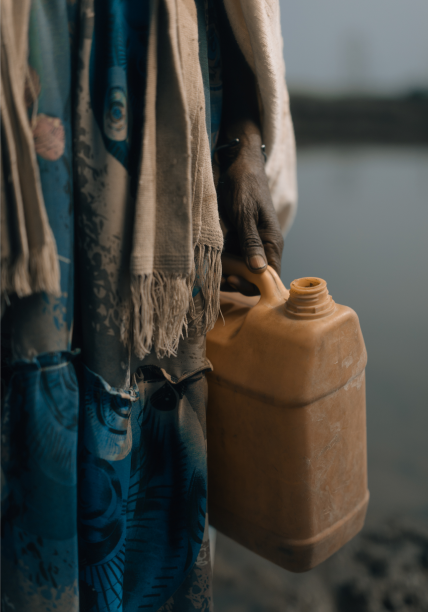
Scott Harrison, founder and CEO of charity: water, spoke on the connection between clean water and mental health in a recent interview with Forbes.
“It’s extreme,” he said. “Women are worried about being raped on these long walks, often through the jungle or the forest. Women are worried about being attacked by crocodiles at the rivers where they get water. Some have told me they’ve seen other women dragged off by crocodiles.”[1]
Mothers fear that their babies won’t live to see their next birthday. (Access to clean water and sanitation alone could prevent the deaths of 297,000 children under five every year.[2]) They carry the mental burden of wondering how they’re going to be able to bathe their children before school, wash clothes, water the garden so they can have fresh food to eat, and still have enough water to drink.
For families in rural communities trying to establish a sense of safety and normalcy, the water crisis is a constant disruption.
If the never-ending strain is too great, the consequences can be dire.
Letikiros knew the eight-hour walk for water well. She had first taken the journey when she was eight years old, and it quickly consumed her time. The responsibility kept her out of school for the majority of the week. By age 13, she had only completed the third grade (Year 2). Still, Letikiros believed that better days were ahead.
One hot morning, Letikiros and a few friends left for the dangerous climb down a 700-foot cliff. After waiting all day to fill their clay pots, they made their way back home. Where the road forked, the girls went their separate ways. Shortly after, Letikiros stumbled. The heavy clay pot, an expensive necessity, fell to the ground. The water disappeared into the thirsty earth—and with it, Letikiros’ hope.
Less than an hour later, Letikiros was found hanging from a nearby tree. She’d taken her own life rather than face the disappointment of her family. Like that clay pot, Letikiros’ young life—in part weighed down by years of fighting for a resource that was always just barely out of reach—became too heavy for her to carry.


The negative mental health effects of the water crisis aren’t a sign of emotional weakness. They’re the heart acknowledging that things are not as they’re meant to be. They’re a testament to the injustice of unequal access to a basic human right.
If worry, anxiety, and exhaustion are some of the symptoms of the global water crisis, clean water—and with it, hope—are the antidotes.
We work with experts in the field of water, sanitation, and hygiene (WASH). Our local partners dig wells, distribute water filtration systems, build rainwater collection tanks, and construct piped systems that bring clean water from the highest mountain springs to the lowest valley’s villages. You can view these projects—all 91,000 and counting—anytime on our website here.
We may work in the WASH sector, but we’re still in the hope business.
During a 2017 trip to Ethiopia, we met a 72-year-old grandfather named Tadese. He’d spent his entire life walking miles to collect water from a dirty stream or spring. When we asked him what access to clean water would mean for his family, his answer was simple:
“If we get clean water, we will be living large.”
This is a recurring theme. Clean water isn’t just about the convenience of a shorter walk and fewer trips to the well. It signals a new beginning. Health granted. Passions found. Long-held dreams come to life.
“Water is life to people.” “Now, our babies will be healthy and strong.” “My child will have a good future. His life will not be hard.” “Now, I am beautiful.” “We will do our work with joy and good health.”


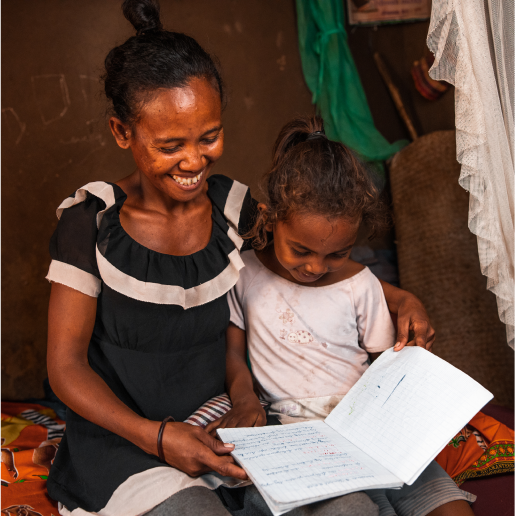

If you’ve been changing the world with us for a while, you’ve probably heard us say “Water changes everything.” And if this is your first time joining us, you’ll definitely hear it again. It’s one of our favorite phrases, because it’s true.
When a community is finally given access to clean water, development follows. Women have more time in their day and can start businesses to provide additional income for their families, Kids can attend school full time. Communities thrive.
Where there was anxiety, there is now peace of mind.
Where there was sorrow, now, there is hope.
It costs $40 to bring someone clean water for the first time. But the transformation it inspires is priceless.
The reality of 703 million people—more than twice the population of the United States—drinking dirty water can be hard to imagine, but it’s even more dangerous to forget.
Clean water makes life possible. Hope makes life enjoyable. The two go hand-in-hand. And hand-in-hand, we believe we can bring clean water to every person on the planet. Because everyone, everywhere, deserves to live unhindered by the weight of dirty water on their backs or in their minds. And hope should be accessible to all.
At charity: water, we believe that clean water is a fundamental human right that opens the door to what makes life great: health, education, leisure, and fulfilling careers. Over a million people like you have already partnered with us on our journey toward an end to the water crisis. Thank you.
Sometimes, we end our stories by asking you to help us make a difference around the world. In honor of Mental Health Awareness Month, we’re going to end with a question:
“What gives you hope?”
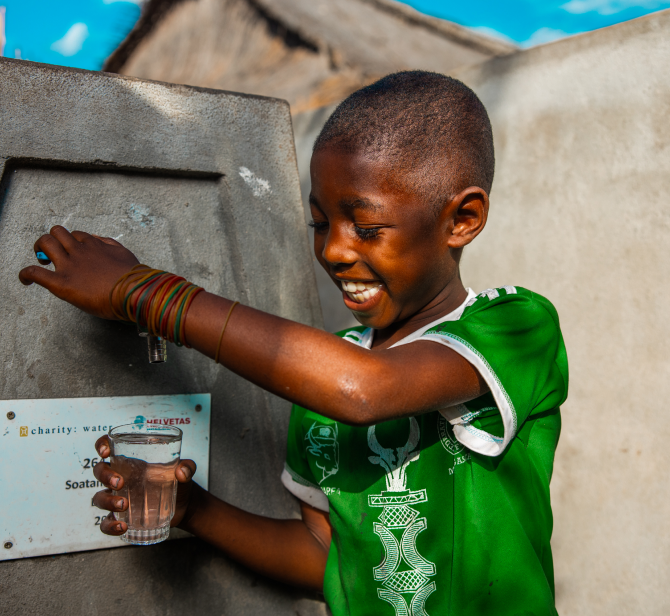
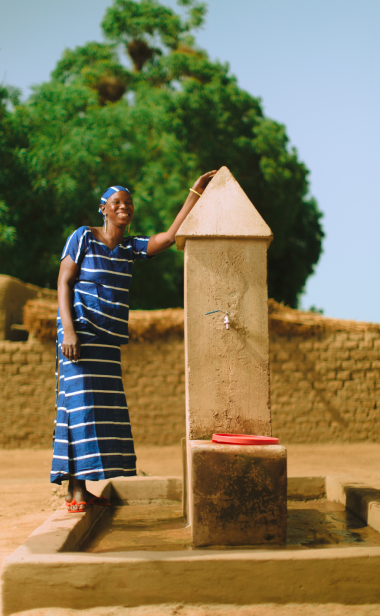
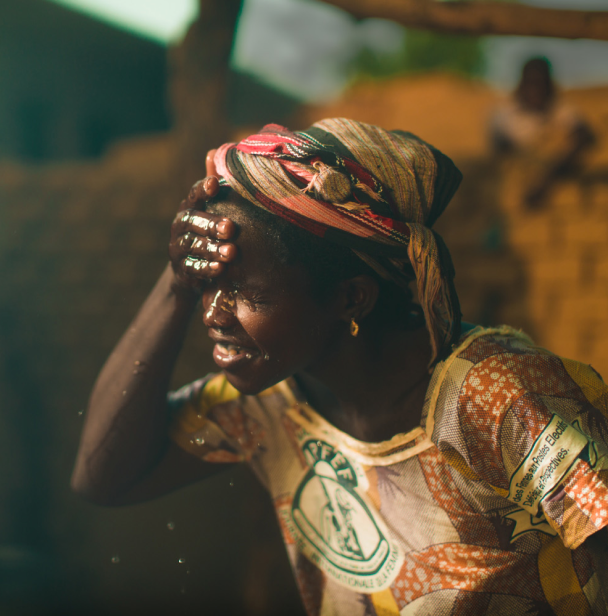
References:

